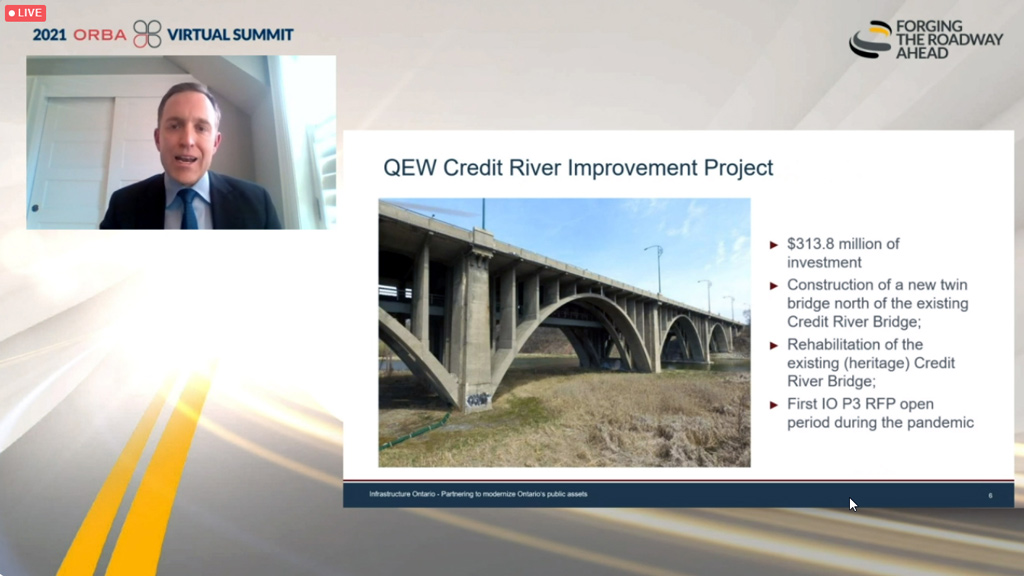The way projects are procured and delivered in Ontario is shifting.
Phil Verster, president and CEO of Metrolinx, and Michael Lindsay, president and CEO of Infrastructure Ontario, both provided separate updates at the Ontario Road Builders’ Association’s virtual summit but their message was the same: change is happening.
Metrolinx shifting to different forms of project delivery
In his presentation, Verster said one of the biggest innovations at Metrolinx is the shift from fixed price contracts to construction management type contracts, such as the alliance model.
“Our shift towards more construction management contracts shows a big philosophical shift for us,” Verster said. “Alliance is a separate free-standing entity. Metrolinx people are represented in that entity together with the contracting team and engineering team and everyone has a commonly aligned objective. The alliance decides how the project is delivered.
“We all want to achieve the same thing…to get transit built. If this is the contracting form that helps us to get this done better I am very keen to hear from all of you about how we can do more of that,” Verster told the audience.
Toronto City Council recently supported the proposed SmartTrack commuter rail line, an enhancement of the GO Transit lines, Verster reported.
“We are going to go to market with a different mindset than we would have done two or three years ago,” explained Verster. “We will allow individual organizations to bid for individual stations rather than big AFP (alternative financing and procurement) or P3 (public-private partnership) type contracts to build for all. There is huge movement on our side to think about how we contract and how to get smaller entities in the market that don’t necessarily have a P3 background to participate in our contracts.”
IO and Metrolinx work with stakeholders to rethink risk allocation
Risk in infrastructure contracts has been a prominent issue for sometime. Both Verster and Lindsay said they are engaging in meetings with stakeholders to discuss the allocation of risk on future projects.
“We’re thoughtful about exposure to certain types of risks in our existing contract structures,” said Lindsay. “We are having a conversation, through confidential meetings with counterparties, about what the right risk transfer to attempt to achieve is in connection to that bundle of risk.”
The QEW Credit River improvement project, a P3 project that went to market in April 2019, was the first project IO closed during the pandemic. Future contracts are expected to be more mindful of risk allocation associated with pandemics and other events.
“It led to an important set of commercial discussions with our counterparties about what we were going to do contractually to allow for that,” explained Lindsay. “We landed on an approach that was principles-based that had at its heart a recognition of the need for relief in scenarios where there was a future or a worsening form of the COVID-19 pandemic and changes in law around health guidance beyond what already existed and is in place today.
“We also had a great conversation with our counterparties about how to make sure as we thought about what got baked in to bids or not baked into bids that was COVID-related, how we made sure that there was going to be an inherent sense of fairness and comparability of the bids one to the other.”
Will there be changes to contract language in the future?
Verster was asked by an audience member if Metrolinx is working on any contract provisions that address the impacts of COVID-19.
“We have given all of our contractors an indication that COVID-related commercial claims and the like need to be treated within the terms of the contract,” said Verster.
“We have received notices of potential claims from many of our contractors and we understand that. Once these claims are quantified, we have to deal with each one of these claims individually and we will deal with them in as fair a way as can be done.”
Follow the author on Twitter @DCN_Angela.











Recent Comments
comments for this post are closed